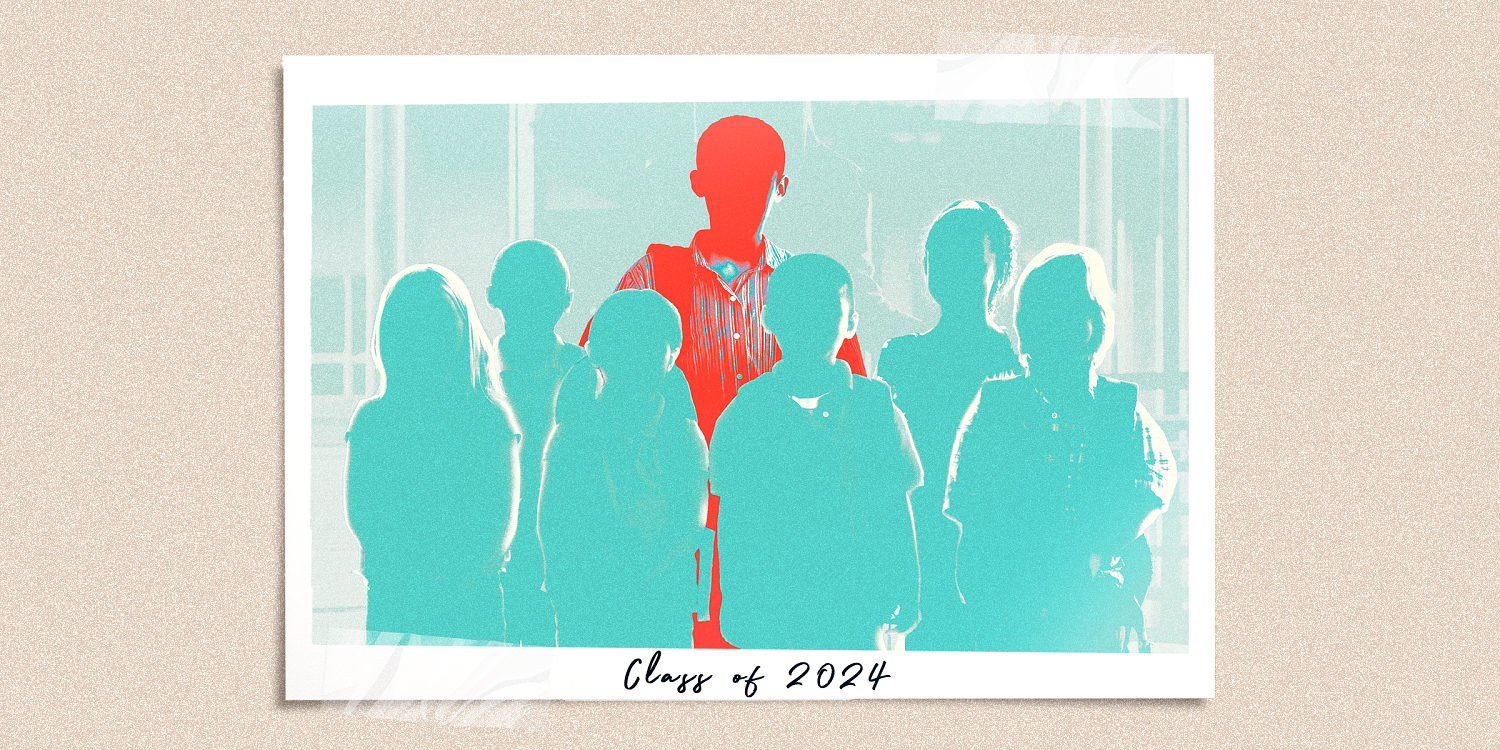You may assume that your child will begin kindergarten shortly after their 5th birthday, but that's not always the case. Depending on where your school places its age cutoff date for enrollment, your child may start kindergarten at 4, 5 or even 6. Because some parents assume — correctly or incorrectly — that their child is not ready for kindergarten, they may wait an additional year before enrolling, a process known as redshirting.
The term “redshirting” was originally used for college students who sat out of varsity competition for a year in order to extend their eligibility to play sports. Today, it also refers to holding your child back an extra year before starting kindergarten. Parents may have extremely valid reasons to redshirt a child.

Perhaps they aren’t socially or emotionally ready for school, or maybe they’ve been diagnosed with a developmental delay. There's always going to be somebody oldest and there's always going to be somebody youngest." Other times, parents may consider holding their child back so they’re not the shortest or youngest of their peers.
They may also want their child to enter school at a slightly older age to be more competitive at academics or athletics. "There's always going to be somebody oldest and there's always going to be somebody youngest," says Tovah Klein, author of “ " and director of the . She says there is "huge variability" in kids' readiness for school, and there's much more variability the younger they are.
Not every parent has the luxury of even considering redshirting their child, however. Klein points out that lower-income families may need children to be in school as soon as possible to eliminate high daycare costs. "Redshirting is very much an upper class, higher-income, higher-educated family thing," she says.
Each state has an age cut-off date for children entering public school, but that date varies. Private schools, however, are not subject to the same rules and can choose an entirely different age cut-off date. "When I started in education, that cut-off was all over the place," says , director of leadership programs for the Roche Center at Boston College.
"Twenty years later, for the most part, states have ." , for example, previously had a cut-off date of Jan. 1 before finally transitioning to a Sept.
1 cut-off date for the 2024-2025 school year. You may be surprised to learn that kindergarten is not always a prerequisite for first grade. In fact, according to the , only 17 states plus the District of Columbia require children to attend kindergarten.
, author of " ?" and professor of early childhood education at the University of Texas at Austin, thinks that there are two reasons we don't have a universal age cut-off date for kindergarten. "First, state rights — states like doing their own things," he tells TODAY.com.
"Second, there is a long history of conservative politicians who fear the ‘nanny’ state and the destruction of the nuclear family." Plus, educating kids is just plain expensive. Some states are more willing to bear the cost to educate kids at an earlier age, he adds.
Gone is the kindergarten you may remember from your childhood with hours of singing songs, painting pictures and playing with blocks. “The curriculum of the schools has been pushed back,” says Klein. “What used to be first grade has been pushed into kindergarten.
” That means there is slightly less freedom of movement and activity and slightly more sitting at a table and working together. The good news, she says, is that “in educated families, where children are being read to, a vast majority of children have the skills they need” to start kindergarten, like recognizing letters and numbers. The harder thing, Klein continues, is recognizing social-emotional readiness skills, such as relating to other children.
If you have a child who may be the youngest in the class, or if you are worried about your child following directions or keeping up with the class, the best thing you can do is to reach out to the school district for guidance. “It’s really important that it’s a full-team decision with parents, teachers, administrators and other educators in each child’s life,” says McMahon. Keep in mind that if you suspect that your child has learning differences, it might be advantageous to start kindergarten on time in order to receive free evaluations and services provided to students who may need individualized education programs.
"We always think older is better, which may have a nugget of truth in kindergarten because of this large variability in how children perform at a younger age," Klein says. "But the question is, does that hold up over time?" It may seem like older children have an advantage, but Klein points out that younger children often get " " by older children. Older children become role models who are setting the skill bar," she says.
"It's almost like older children get to be the teachers in a way." The typical unevenness of development is going to smooth out for a vast majority of children." Working as both a teacher and an administrator at public, private and Catholic elementary schools in both urban and suburban settings, McMahon has seen many families wrestle with the redshirting decision.
In the end, she says that any variance in behavior or ability “generally evens out by middle school or high school.” All of the experts encourage parents to project what their child’s experience might be throughout their teenage years, not just in kindergarten. For example, would getting a driver’s license a year before their peers present additional concerns for your family? The redshirting discussion more often circles around boys than girls.
Klein says there isn’t data that definitively states that one gender may be much more academically ready for school than the other, but McMahon notes that boys may have more challenges in school in terms of switching from play mode to school mode, especially at the younger end of the spectrum. There's one more reason that parents may consider holding boys back more often than girls, and it's closely related to the original definition of redshirting. "Boys are more likely to be redshirted — not only for social reasons, but also for sports," says Brown.
"I live in Texas, and football is king. Many families want their child to be as old and big as possible by the time they are ready to play high school football." Our experts shared a number of questions you should ask yourself when considering holding your child back a year: Overall, experts caution parents to do their research and base the decision on — not on general data, social media or anecdotal situations.
Ultimately, you are your child's best advocate. Use your own observations, do your homework and reach out to your child's school for guidance if you have concerns. Deciding when to start kindergarten can often feel like a heavily loaded topic, but in general, most children will do just fine adhering to the age cut-off designated by the school.
"You don't want your child being a big outlier unless there's a documented developmental issue," reassures Klein. "Because the typical unevenness of development is going to smooth out for a vast majority of children." Rosie Colosi lives in New Jersey and is a reporter for TODAY Parents.
She has bylines in The Atlantic, The Week, MSNBC, and PureWow, and she has written 33 nonfiction children's books for Scholastic, Klutz, and Nat Geo Kids. Once upon a time, she played Mrs. Claus in "The Rockettes' Radio City Christmas Spectacular," but now she mostly sings songs from "Annie" to her two daughters .
.. while they beg her to play Kidz Bop.
.



















